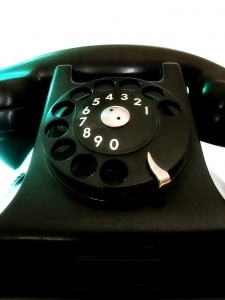 The Federal Communications Commission (“FCC”) recently sent a Notice of Apparent Liability for Forfeiture (the “Notice”) to PTT Phone Cards, Inc. d/b/a Star Pinless (“PTT”), proposing penalties of close to $500,000.00 for, among other things, PTT’s alleged failure to obtain International 214 authority before providing international telecommunications services.
The Federal Communications Commission (“FCC”) recently sent a Notice of Apparent Liability for Forfeiture (the “Notice”) to PTT Phone Cards, Inc. d/b/a Star Pinless (“PTT”), proposing penalties of close to $500,000.00 for, among other things, PTT’s alleged failure to obtain International 214 authority before providing international telecommunications services.
The Importance of Obtaining a Section 214 License
As we have reported, all providers of telecommunications services (regardless of whether they are domestic or international carriers) that supply international outbound services to the general public from the United States to any foreign destination must obtain an International Section 214 license from the FCC before offering or providing such services.
While there are a number of benefits associated with obtaining this license, as the recent Notice demonstrates, the potential penalties are significant for failure to secure 214 approval.
FCC Proposes Enormous Forfeitures for Failure to Obtain Section 214 License
Following a year and a half long investigation, the FCC proposed penalties totaling $493,327.00 against PTT for “apparent” and continuing “violations.” PTT, one of the largest companies in the prepaid calling card business, has sold its calling card products and services both online and in physical locations, such as grocery and convenience stores. Among other alleged violations, the FCC accused PTT of willfully and repeatedly failing to: (i) obtain Section 214 approval; (ii) report certain revenues on FCC Form 499-A; and (iii) pay required regulatory fees in connection with its annual reports required to be submitted to the FCC.
In the Notice, the FCC indicated that PTT was providing international telecommunications services for over three years without applying for Section 214 authority – and only applied for such authority after the FCC alerted it to its investigation. The FCC found PTT liable to pay a “forfeiture” of $100,000.00 for its willful or repeated failure to obtain a Section 214 license before providing international telecommunications services. The FCC further found PTT liable for failing to timely file annual reporting worksheets in connection with FCC Form 499-A in the amount of $150,000.00 ($50,000.00 for each year at issue). The remaining penalties/forfeitures were for other purported violations by PTT, which the FCC coined an utter “disregard of virtually all of its regulatory obligations for over three years.”
Bottom Line: Get Licensed
The Notice should serve as a warning to all providers of telecommunications services that supply outbound services to the general public from the United States to any foreign destination. We routinely file 214 license applications and similar state Public Service Commission telecom applications on behalf of our clients. As demonstrated by the PTT case, the time and expense involved in this process is relatively nominal compared with the potential forfeitures for failing to obtain licensure.
If you are interested in learning more about this topic, or if you require FCC or state telecom licensing representation, please e-mail us at info@kleinmoynihan.com, or call us at (212) 246-0900.
The material contained herein is provided for informational purposes only and is not legal or tax advice, nor is it a substitute for obtaining legal or tax advice from an attorney or tax advisor. Each situation is unique, and you should not act or rely on any information contained herein without seeking the advice of an experienced attorney.
Attorney Advertising



